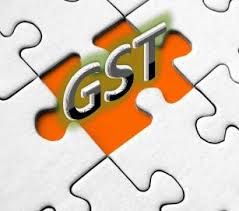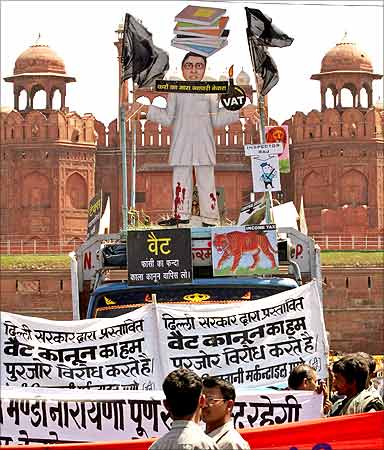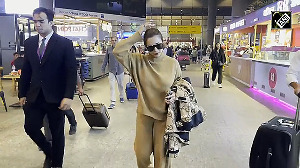 Even as the International Monetary Fund says the proposed goods and services tax will improve tax compliance and enhance economic growth by 1-1.5 per cent over time, it finds the structure of the indirect tax regime in India complex.
Even as the International Monetary Fund says the proposed goods and services tax will improve tax compliance and enhance economic growth by 1-1.5 per cent over time, it finds the structure of the indirect tax regime in India complex.
“The GST design being contemplated is... fairly complex, with a dual administration arrangement that involves the tax authorities of both the Centre and states separately taxing a single transaction,” says the Fund in a report on India.
To a Business Standard query on this, Thomas Richardson, an author of this subject in the report, said the proposed structure of GST would require the Centre to coordinate with 30 states.
It would also be administratively challenging because state tax officials did not have experience in taxing services, said Richardson, also a senior resident representative of IMF in India.
According to the Constitutional Amendment Bill on GST, pending in the Lok Sabha, both the Centre and states will levy the new tax on a common pool of goods and services.
Earlier, the 13th Finance Commission, headed by Vijay Kelkar, had mooted a single GST structure, with the Centre imposing GST and allocating the funds to itself and states.
However, the idea found no favour with the empowered group of state finance ministers on GST.
The Fund says issues that will require further work include crediting across inter-state borders, settlement of revenue sharing, and building capacity in states to tax services.
Nonetheless, IMF points out, a well-functioning GST will enhance tax compliance and boost GDP growth, perhaps by as much as 1-1.5 per cent.
It refers to a National Council of Applied Economic Research report on GST’s impact on GDP expansion.
However, GST may not add substantially to the government’s revenue in the near term, as it will replace a number of central and state-level indirect taxes.
Further, the Centre is expected to guarantee, for a limited time, compensation to states losing revenue, it says.
IMF also points to the need to expand the direct tax base by improving administration on the basis of the recommendations of the Tax Administration Reform Commission, headed by Parthasarathi Shome.
It says there are only about 40 million direct taxpayers, both corporate and individual.












 © 2025
© 2025